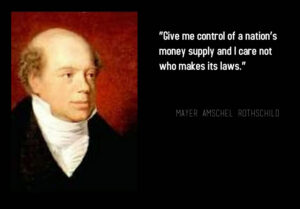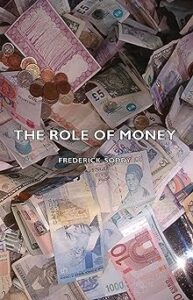To understand the heartbeat of a nation’s economy lies in comprehending the inner workings of its monetary system.
The operation of an honest money system is the bedrock of stability, ensuring fair play in financial interactions and upholding the trust of its citizens.
Yet, the journey of the American currency has been marked by turbulence, veering away from its intended path of democratic sovereignty towards the clutches of private interests.
Restoring our money system isn’t just a fiscal adjustment; it’s a call to rekindle the essence of economic liberty and democratic values.
Understanding what went amiss and charting a course to reclaim financial integrity is pivotal to safeguarding our economic future.
Citizens’ Demands for a Reformed Monetary System
(a) Congress to Reclaim Sovereign Power: The demand rests on restoring Congress’s authority to “Coin Money and regulate its Value,” separated from banking functions.
(b) Decoupling Sovereign Power from Banking: The emphasis lies on disconnecting sovereign control from typical banking operations.
(c) Restrict Banks’ Role: Banks should be privately owned, limited to functioning solely as custodians and lenders of U.S. Legal Tender.
Rationale for the Demand
1. Restoring Government’s Pinnacle Function: The aim is to return the government’s supreme function to its elected representatives.
Societal norms dictate that critical economic functions should be managed by society as a whole or by mandated representatives.
2. Understanding Sovereign Power: It refers to a collective power inherent in all citizens, pivotal for national activities and the supreme jurisdiction over citizens in a nation, acknowledging a higher order under God.
4. Social Essence of Humanity: Humans, designed by a higher power, thrive in communal living. Each person’s role, be it a tailor, carpenter, or fisherman, contributes to the collective economic well-being.
Money, the common trade medium, isn’t owned by any individual but belongs collectively, regulated by the Government.
5. Congress as the True Governance: Congress, formed by the people, falls short in governance if devoid of the authority to directly create and provide the essential exchange medium.
This medium of exchange stands unparalleled by any other government function.
6. The Supremacy of Monetary Control: As Rothschild asserted, controlling a nation’s money eclipses legislative powers.
Absolute control over money issuance and regulation empowers an individual or group to manipulate wealth distribution, hampering trade and economic activities, wielding influence over the nation’s wealth
7. Role of Private Entities: The Federal Reserve Banks, solely owned by private individuals, dominate 95% of US money circulation, channeling profits to their owners.
Their advance knowledge of policies allows international speculators to amass profits and shield unethical practices.
8. Federal Reserve and International Banking: Federal Reserve Banks align with global financial entities like the Bank of England, Bank of France, and others.
Despite their appearance as government-owned, they’re privately held, manipulating global economies under false pretenses.

9. Operations of International Bankers: These private entities exploit global funds, maneuvering gold, silver, loans, and banknotes across borders to manipulate price levels.
Their actions prioritize personal gains, revealing their greed-driven agenda over national interests.
10. Character of International Bankers: While a few may hold honor, their collective policies lack morality, sidelining patriotism, democracy, justice, and charity in favor of unsound practices and policies.
Explore “Why Is Your Country at War and What Happens to You After the War and Related Subjects” by Charles A. Lindbergh, a revealing analysis of war’s causes and its profound effects on society and individuals.
11. Local Bankers’ Role: Local bankers, often uninformed of detrimental policies dictated by a select few international financiers, end up inadvertently victimized by these directives.
12. Restoring Government Integrity: By entirely separating money creation from banking operations, Congress alone should wield the sovereign power to issue and regulate money, restoring the government’s integrity to genuinely represent the people.
13. Steps for Congressional Control:
- Revoke the National Bank Act of 1863.
- Repeal the Federal Reserve Bank Act of 1913 and all subsequent related acts.
- Enact legislation aligned with the Constitution, allowing Congress to mint money and regulate its value.
This legislation should include:
- Establishment of a Congressional Board of Money, appointed by Congress, issuing interest-free currency bearing the US Government seal to maintain fair price levels.
- Exclusive management of foreign exchange by the Congressional Board of Money, avoiding fixed metal prices. Foreign currency values should adapt based on global market dynamics.
- Transfer of a secretive stabilization fund from the Treasury Department to the direct jurisdiction of the Congressional Board of Money. Segregation of Treasury functions from money creation directives, focusing solely on tax collection and disbursement.
- Restriction of privately owned state-chartered banks to the role of custodians and lenders of US money, while government lending agencies continue until loan liquidation or categorization as non-collectible.

Restoring Congressional Authority: Reviving Public Over Sight of Currency Control
The focus is on restoring Congress’s authority to oversee the currency.
Citizens should demand Congress to reclaim its constitutional power to coin money and regulate its value, separating this power from banking functions.
Money, a social necessity, should be a collective tool regulated by society.
Congress, as the elected body, requires this authority to govern effectively, ensuring the nation’s economic stability.
The current scenario highlights private entities, particularly the Federal Reserve Banks, controlling the majority of the nation’s money, leading to personal gains and harmful economic consequences.
To restore control, actions are proposed: revoking acts like the National Bank Act and the Federal Reserve Bank Act, establishing a Congressional Board of Money, and restricting banks to custodial roles.
This aims to ensure that money creation and regulation remain within Congress’s exclusive domain, serving the public interest.

